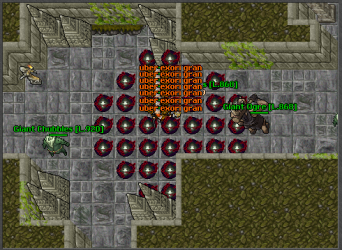Tbol
Well-Known Member
- Joined
- Apr 7, 2019
- Messages
- 531
- Reaction score
- 56
I will try to explain what i mean but basically when you cast a spell orange text appears above your head right? So if you cast it like a lot of time it stacks up and it looks just nasty so i will provide image what i mean
Is it possible to make it so it send only like max 3 not that much as in image
Is it possible to make it so it send only like max 3 not that much as in image
Attachments
-
 yea.png210.8 KB · Views: 44 · VirusTotal
yea.png210.8 KB · Views: 44 · VirusTotal
